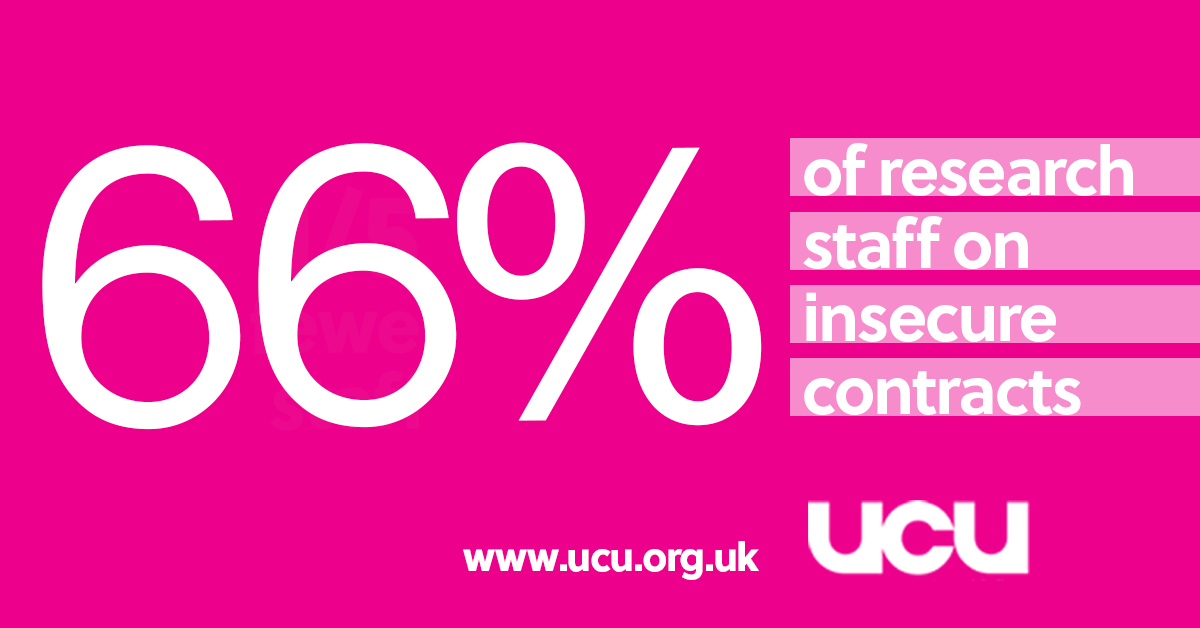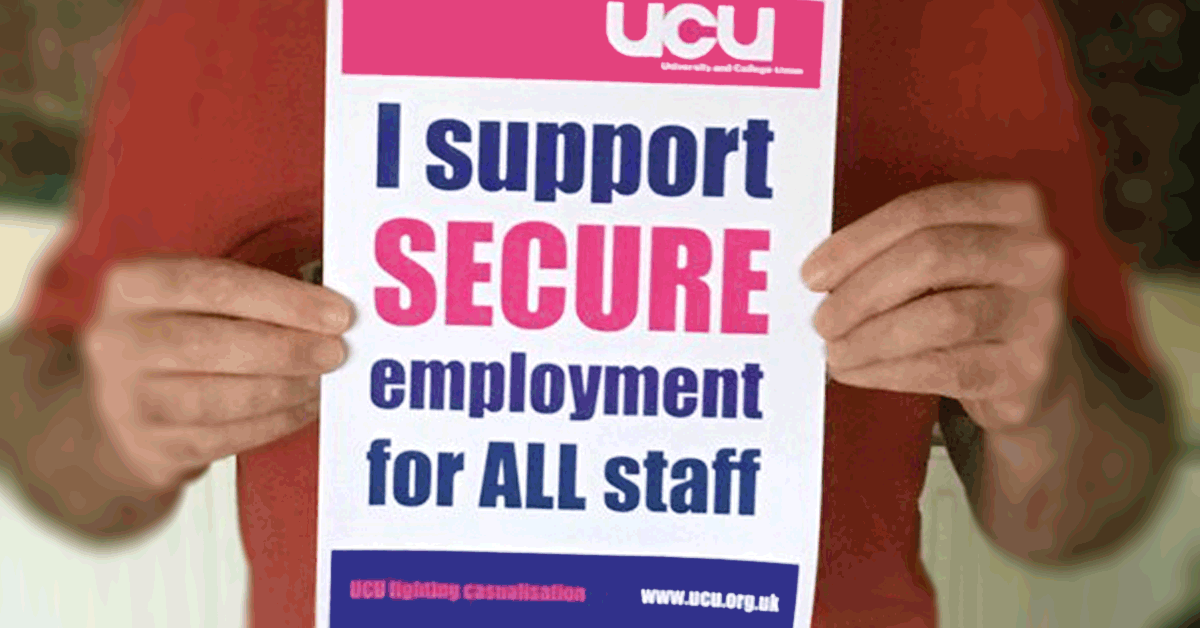
New report exposes 'gig-economy' reality of prestigious university research departments
31 January 2024
Around two-thirds (66%) of research staff are employed on fixed-term contracts, some less than a year in length. The findings are from a new UCU report.
University researchers do important work, such as helping to develop Covid vaccines, enabling UK institutions to tout their credentials as research powerhouses through the Research Excellence Framework, and helping to bring billions of pounds of funding into university coffers. Yet UCU's "Support for Research Staff" report lays bare the extent of shocking 'gig-economy' style employment practices at some of the most prestigious universities in the UK.
The report is based on freedom of information (FOI) requests to the 103 UK higher education institutions that employ at least 20 research-only staff and/or where research staff made up at least 5% of the academic staff, combined with Higher Education Statistics Agency (HESA) data on research staff terms of employment. The results, published for the first time, paint a damning picture of the sector's employment practices. Key findings include:
- around two in three research staff are employed on fixed term contracts, including 88% of research staff at the University of Oxford, 96% at King's College London, 80% at the University of Manchester and 96% at London School of Economics
- nearly a third of universities (30%) were unable to say whether research staff were redeployed at the end of their contract. Of those institutions that did respond, redeployment levels were as low as zero
- only one employer offered enhanced paid notice periods to research only staff on fixed-term contracts
- most employers paid only statutory redundancy pay to research staff dismissed at the end of a fixed-term contract.
The report uses the FOI responses and HESA data to score employers and determine how well they support their research-only staff to improve their security of employment. Questions include whether researchers were successfully redeployed when coming to the end of their contract, the availability of 'bridging' funding to keep staff employed between projects, and the use of enhanced redundancy pay and extended notice periods. The results paint a picture of poor practice across the board. Universities were scored out of 100. the highest score was just 64. Only eight universities scored above 50, whereas 39 universities received a score of less than 30.
The report sets out a series of recommendations for employers to help stamp out precarious research contracts. These include:
- Working with UCU towards a more sustainable model of employment for research staff.
- Committing to reducing the use of fixed term contracts and moving research staff into more secure forms of employment.
- Providing greater support for staff reaching the end of their contract or externally funded project such as offering bridging periods, extended notice periods and enhanced redundancy pay.
UCU general secretary Jo Grady said: "This report shines a light on an area that universities would rather keep shrouded in darkness. Namely the widespread use of gig-economy style short-term contracts for the staff who prop up university research departments.
"The poor scores across the board on areas like fixed-term contracts, proper redeployment processes and decent redundancy provision speaks of a sector that urgently needs to update its attitudes to employment practices. Critically, the worst practices are not confined, as one might expect, to the least financially secure institutions. Far from it: five of the 24 Russell Group universities are in the bottom half of the table. At Oxford, for example, a staggering 88% of research staff are employed on a fixed-term contract.
"The current funding model for much UK research allows employers to blame the system for their choice of employment practices. But we should be clear, it is a choice. Better workload management by employers coupled with the use of proper redeployment can help move staff to more sustainable employment. Worryingly, nearly a third of respondents were not able to tell us how successful they had been in maintaining their research staff in employment.
"Universities need to work with UCU towards a more sustainable model for the employment of research staff. They need to commit to reducing the use of fixed term contracts and move their research staff to genuinely secure contracts. And they need to put systems in place that support continuity of employment and minimise the risk of redundancy at the end of funded research projects."
- PrintPrint this page
- Share



